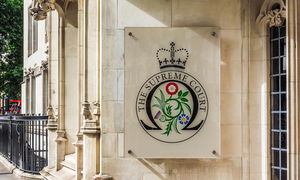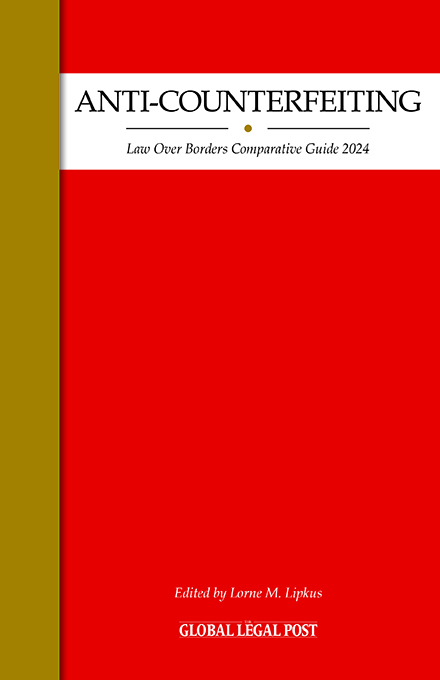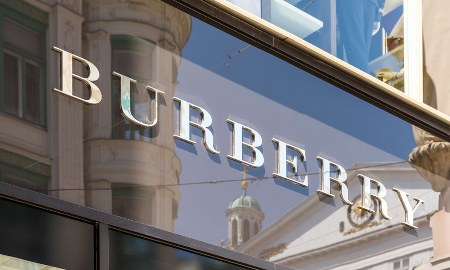Sign up for our free daily newsletter
YOUR PRIVACY - PLEASE READ CAREFULLY DATA PROTECTION STATEMENT
Below we explain how we will communicate with you. We set out how we use your data in our Privacy Policy.
Global City Media, and its associated brands will use the lawful basis of legitimate interests to use
the
contact details you have supplied to contact you regarding our publications, events, training,
reader
research, and other relevant information. We will always give you the option to opt out of our
marketing.
By clicking submit, you confirm that you understand and accept the Terms & Conditions and Privacy Policy
Two directors of a fashion business which infringed the Beverly Hills Polo Club trademarks have been found by the UK Supreme Court not to be strictly liable for the infringement in a ruling dubbed a potential “get out of jail free card” for company directors.
In a judgment handed down yesterday, the court ruled that the strict liability applied to the offending UK business, which subsequently went bust, did not extend to its directors.
As Lifestyle Equities CV, which owns the UK and EU Beverly Hills Polo Club trademarks, had failed to prove that siblings Kashif Ahmed and Bushra Ahmed knew about the infringements or had turned a blind eye to them, the court allowed their appeal.
The Ahmeds were directors of two companies – Continental Shelf 128 Ltd and Hornby Street Ltd – which both traded under the name Juice Corporation, and had been found by a lower court to have infringed the Beverly Hills Polo Club trademarks by selling clothing displaying Santa Monica Polo Club logos which also included images of horse-riding polo players.
Mr Recorder Douglas Campbell QC, sitting in the Chancery Division, also held the Ahmeds to be jointly liable for the infringement. And although he rejected Lifestyle’s argument that they should pay back the profits their dissolved company had made from the infringements, he ruled that they should account for any profit they had made personally, calculated as 10% of their salaries during the period in question alongside a loan made by the company to Kashif Ahmed.
Allowing the Ahmeds’ appeal, Lord Leggatt wrote in the unanimous judgment: “In a simple case where, for example, a company offers for sale counterfeit goods, it may be obvious that a director who arranged for the manufacture and sale of the goods must have known the facts which made the company’s acts infringements of the claimant’s trademark.
“But the present case is not of this kind. The Santa Monica Polo Club signs used by Hornby Street were different in various ways from Lifestyle’s registered trademarks and there was room for argument and honest difference of opinion about the extent of the similarity and whether it gave rise to a likelihood of confusion or otherwise resulted in infringement.”
Leggatt concluded: “To justify the conclusion the Ahmeds were jointly liable with Hornby Street... it would have been necessary to show that the Ahmeds had knowledge of (or turned a blind eye to) the facts which made the use of the Santa Monica Polo Club signs by Hornby Street infringements of Lifestyle’s trademarks. But no such case was advanced and the judge made no such finding.”
Leggatt agreed that even if the Ahmeds had been held liable for the infringements, the only profits for which they could have been liable for were profits which they themselves rather than the company had made. But he found no evidence that they had personally profited from the infringements. “The orders for an account of profits were wrongly made,” he ruled.
Reaction
Mark Buckley, commercial litigation partner at London firm Fladgate, said the ruling appeared to be a “get out of jail card” for company directors.
He said there was a long line of cases, particularly involving IP infringements, where a director of a small company, who was effectively the alter ego of the company, could be jointly liable with the company for such infringements.
He believed that after this judgment, the burden of proof would be on the claimant to show what the director’s state of mind was, providing “a barrier to bringing claims against directors of counterfeiting companies and other IP infringers”.
Gill Dennis, a brand protection expert at Pinsent Masons agreed, saying: “Directors will welcome this decision – it may even come as a relief. We can expect many future disputes before the courts to revolve around what knowledge must look like for liability to be incurred.”
But she warned: “Brand owners are likely to be disappointed by the decision. It limits their ability to go after a director for infringement of their IP, and where, as in this case, the company committing the infringing acts becomes insolvent, it may effectively leave them without a remedy at all.”
Nick Aries, UK-based IP partner at Bird & Bird, said that it must be shown that the party “has knowledge of the essential facts which make the act done wrongful, even where the tort is one of strict liability (like trademark infringement)”.
He added: “In trademark infringement cases, this means that, for example, a company director is more likely to be found jointly liable for the sales of obviously counterfeit goods by the company than for sales of goods bearing signs where there is room for argument about whether there is a likelihood of confusion or any unfair advantage taken of the registered trademark. It will always turn on what knowledge the director in fact has.”
The Ahmeds were represented by 3 Hare Court’s Peter Knox KC, Gray’s Inn Tax Chambers’ Laurent Sykes KC, Lamb Chambers’ Timothy Sampson and 3 Hare Court’s Adam Riley, instructed by Ronald Fletcher Baker.
Lifestyle was represented by Hogarth Chambers’ Thomas St Quintin and 9 Stone Buildings’ Rory Brown, instructed by Brandsmiths.
Lifestyle Equities was successful in March in separate litigation involving the e-commerce giant Amazon. Amazon lost an appeal at the Supreme Court to lift an injunction that had stopped it selling branded goods containing Lifestyle’s trademarks on its US website.
Further background
At the first trial in October 2017, the court found that the defendants had committed trademark infringement and misrepresented the goods as being the goods of someone else.
Lifestyle made a claim against the defendants’ two companies seeking payment of the profits made from the tort, but both companies became insolvent.
There was a second trial concerning the Ahmeds’ accessory liability. The Ahmeds were each found to be liable and each ordered to pay money to Lifestyle to account for profits made from the tort.
Both parties appealed to the Court of Appeal,
Lifestyle appealed against the decision that the Ahmeds were not liable to account for the profits made by Hornby Street (one of their businesses) from its infringements. The Ahmeds cross-appealed against the decision that they were jointly and severally liable for the infringing acts of Hornby Street and that they had made profits from those infringements for which they were liable to account to Lifestyle.
Lifestyle’s appeal was dismissed and the Ahmeds was partially allowed. The Supreme Court bench comprised Lords Lloyd-Jones, Kitchin, Leggatt, Stephens and Richards.
Email your news and story ideas to: [email protected]






.jpg)
.jpg)




